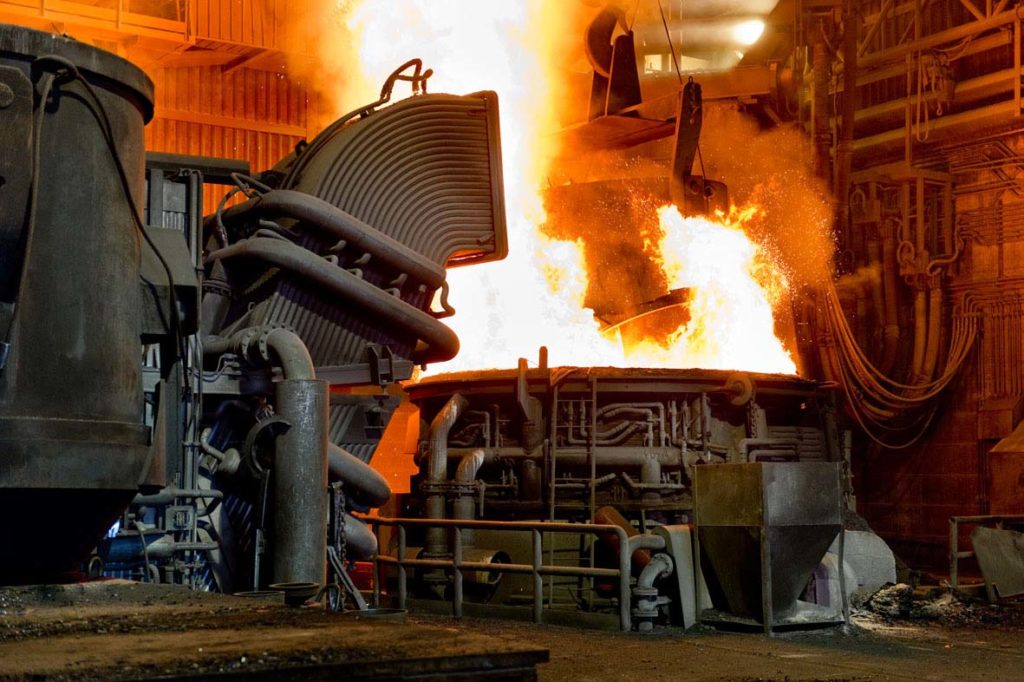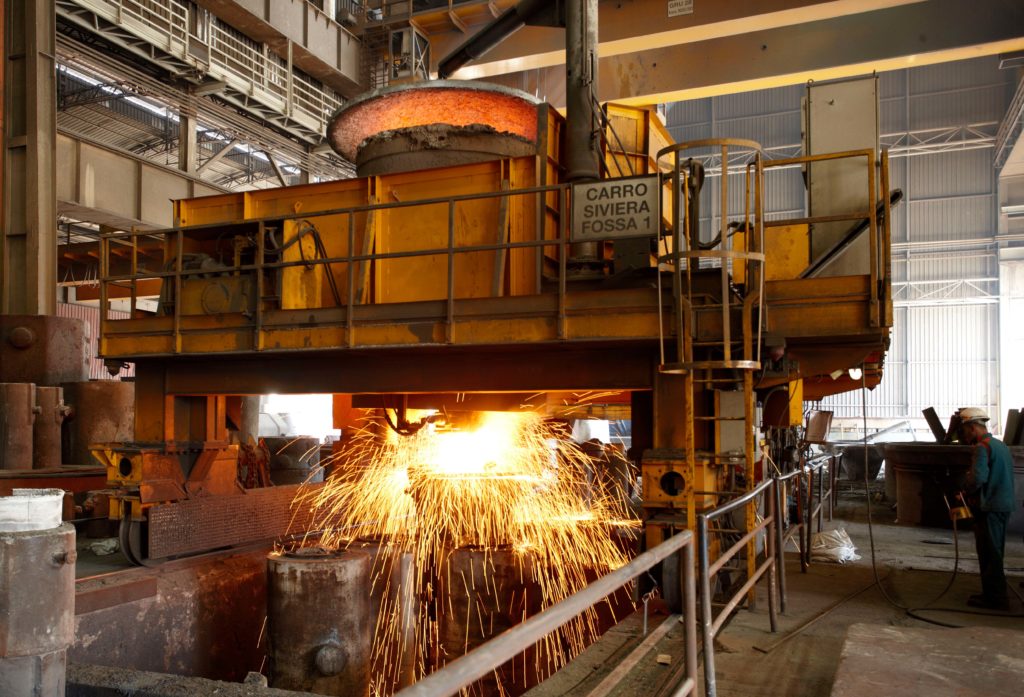The foUrth industrial revolution issues committing challenges to foundries and solution providers. the market more and more often asks for almost customized high-quality products. to grant them, the preliminary condition is an effectiVe integration of heterogeneous and efficient technologies.
Roberto Carminati
Claudio Morbi, founder of Brescia brand Stain, which for over twenty-five years has developed and supplied Mes (Manufacturing execution system) software solutions, has recently taken over the headlines also in virtue of an original interview. The theme of that context was the so-called pizza Margherita paradox. In the third millennium, not only that Italian delight that has conquered the world can be ordered in Internet and delivered on the house door in the wished times. Its quality can also be commented, with a slice still in our hands, with a potentially endless number of other tasters, we daresay live. A similar rapidity – here the paradox – seems to concern industrial processes to a much lower extent and more sporadically, and specifically those of foundry and metallurgy, historical partners of Stain. In this ambit – this is the opinion of Morbi –data are collected with excessive slowness and processed superficially or incorrectly, thus generating hidden costs that finally cause a neat loss of competitiveness. For the good fortune of the made in Italy, and naturally of the software house itself, the outcry stirred by the Industry 4.0 issue and – why not? – also by the shower of incentives and facilitations assured by Calenda Plan has contributed in partially changing this scenario. Manufacturing companies’ awareness of innovation is rising and results are consolidated, too.
Randomly
Certainly, especially when we refer to a foundry industry that, mainly in induced activities, is extremely variegated and pulverized, generalizing is impossible. However, it is undoubted that something is changing. «What I would like to say – started explaining Claudio Morbi – is that the attention level is notably rising: entrepreneurs and managers are finally understanding the digitalization advantages fully. It is hard to say whether are more numerous those that are proceeding to the upgrading, in the light of a precise strategy, seizing the opportunity of creating higher efficiency, or the others. That is to say, those that at present just take advantage of hyper -amortizations». Nevertheless, one of these two different typologies of entrepreneurial reality is probably facing a rosier future, also because – or mainly because – its will of changing to progress is fruit of a targeted strategy, which is the essential preliminary condition. «Those pursuing a real and long-lasting improvement – added Morbi – choose, buy and implement applicative instruments that guide them in the direction of a real digitalization of workflows and that can support them to reach the most important absolute target, i.e. an optimized information management. Because – and this is a direct corollary of the pizza paradox- the availability of enormous amounts of data is not all. On the contrary. The datum, if it remains an end in itself, is scarcely useful. It must be correctly interpreted and be the base, the certain measure for a constant organizational improvement».
[su_quote]

« Those pursuing a real and long-lasting improvement – added Morbi – choose, buy and implement applicative instruments that guide them in the direction of a real digitalization of workflows and that can support them to reach the most important absolute target, i.e. an optimized information management. Because the availability of enormous amounts of data is not all. On the contrary. The datum, if it remains an end in itself, is scarcely useful. It must be correctly interpreted and be the base, the certain measure for a constant organizational improvement». [/su_quote]
Target: zero repetitiveness
Certainly, neither software producers nor market trends are asking foundries to cross Rubicon and to provide for such a metamorphosis. They are customers themselves, especially when they are big international Groups, whose requirements of undisputed quality are becoming increasingly pressing and strict in time. That is not all. «Industry and markets are assuming a new image that was unknown until some years ago – pointed out Morbi – and they privilege refined and customized machining, instead of repetitive and volume manufacturing. This is the core of 4.0 competitiveness. Big batches consisting of millions of pieces, needing relatively easy manufacturing, are no longer the central issue and also services should be customized under certain respects, together with products. Consequently, to maintain margins and competitiveness, processes must be controlled and monitored according to some determinate parameters». It seems that Italian metallurgy is accepting the challenge and duly answering to the call. «They are not unprepared to deal with the game », it is the impression of Stain founder, «and not fortuitously is rising the adoption of technological solutions explicitly oriented to the management of certain data, in real time, to schedule and to optimize machining times and processes». In the long debate on the fourth industrial revolution, some ambiguities have not missed and sometimes the decisive role of software and of intelligences, central in the course towards the finishing line of the process digitalization, has not been sufficiently clarified. Neither all false myths have been discredited. Stain, for its part, intends to assure that customers companies and the so-called prospects can concretely assess criticalities and benefits from such shift.
Training on the field
To do that, simultaneously with important exhibition events, it organized (and the idea is to go on doing that) demo units of integrated foundry processes including the phases that go from the entry of materials until the final metrological inspective test of each piece. The choice of making prospects meet the most fidelized users derives from the belief that only the concrete already implemented experiences of Industry 4.0 can constitute an example to give birth to further as concrete experimentations. To obtain a waste reduction in companies and to improve results, hand in hand with the excellence of manufactured goods, companies’ confidence in innovation is the typical “conditio sine qua non”. Concerning instead false myths, we have often heard debates about the possibility of gaining access to an effective machine data collection for predictive maintenance through sensors, also duly upgrading and equipping old-generation plants. Morbi has partly disagreed: «The predictive maintenance – he specified – optimally matches machines devised to be predictive. On the contrary, the sensors installed on obsolete machines risk of causing damages instead of bringing the hoped benefits. A 15 years old press can certainly be improved but the precision of result longed for by users cannot be taken for granted. Well, some technologies are integrated in native manner but the problem often resides in a superficial management of the ordinary maintenance». In other words, in aspiring to be 4.0 when one has neither succeeded in being fully 3.0; because innovation «is an investment like another and then it must be essentially profitable. Therefore, it must be made with awareness and according to a real vision».
Consolidating the change
Once ascertained difficulties, Industry 4.0 has involved Italian factories in a «beneficial wave, clearly witnessed by the dialogue with more and more aware companies». Just recently, in the opinion of Morbi, software developers were the only ones discussing digitalization and the possible optimization of processes, whereas now we face «a more diffused and shared culture». However, this does not exclude there is still much to do. «In my opinion, the long wave is likely to go on along this year and probably in 2019, too – said Morbi – because a certain turmoil is still perceivable. Certainly, we have undertaken a course we cannot travel back and that requires, first of all, a consolidation of the steps forward taken until now». In this scenario, the focus of Stain has already been traced. «Focusing on Manufacturing execution systems is fundamental –ended Claudio Morbi – because Industry 4.0 requires specificity, to a greater extent from relatively small companies strongly rooted into the territory, like ours. Specialization, focus and verticalization are essential elements. Besides, the system integration must be driven rationally, faced by customers without fears. We explain it with the example of a good mechanic technician’s toolbox, which cannot contain only a wrench or a screwdriver but must be provided with a multiplicity of useful tools. Companies as well need different tools because problems are always different. If we can rely on partners’ and customers’ willingness, the connection, the interconnection of heterogeneous platforms, which is one of the big problems of the made in Italy, is absolutely feasible without shocks and with absolutely certain outcomes. Not fortuitously, we manage to integrate managerial systems of whatever manufacturer with excellent results».
Numbers do not lie
Mathematics is not an opinion, even more when the issue is calculating the success outcomes of the installation, according to 4.0 requirements, of the Mes platform by Stain at the headquarters of a valuable customer like Fabbrica d’Armi Pietro Beretta. Due to the implementation, Beretta has achieved the 15% productivity rise of its lines in terms of units-hours; the 70% decrease of the man-hours employed for data processing and management activities; the 50% drop of errors in inventory activities. Stocks have diminished by 19% and man-hours dedicated to inventories have decreased by 63%. A further witness of the validity of Stain solutions was provided by Galba, and collected in the e-book that Stain drew up on the occasion of its 25th anniversary in 2015. To the question regarding the influence exerted by Stain on the positive evolution of the company, protagonist in the sector of machining processes with high technological content for a variety of sectors, the owner Enrico Baiguera answered that the influence had been strong and perceivable. Adding, as confirmation of what said by Claudio Morbi in this article: «We have taken a big quality leap both in the technology used and in the organization. Moreover, we have hugely invested in automation, in control machines and robotics. (…) We have made big investments in the technological part, implementing the robotic work that integrates the manufacturing cycle: from the raw piece collection, in some cases directly from the caisson, without the operator has necessarily to touch the pieces to proceed afterwards to the machining. The target was reducing costs and maximising the company’s activity: precisely avoiding the impact of the “human cost” on the product as much as possible».





